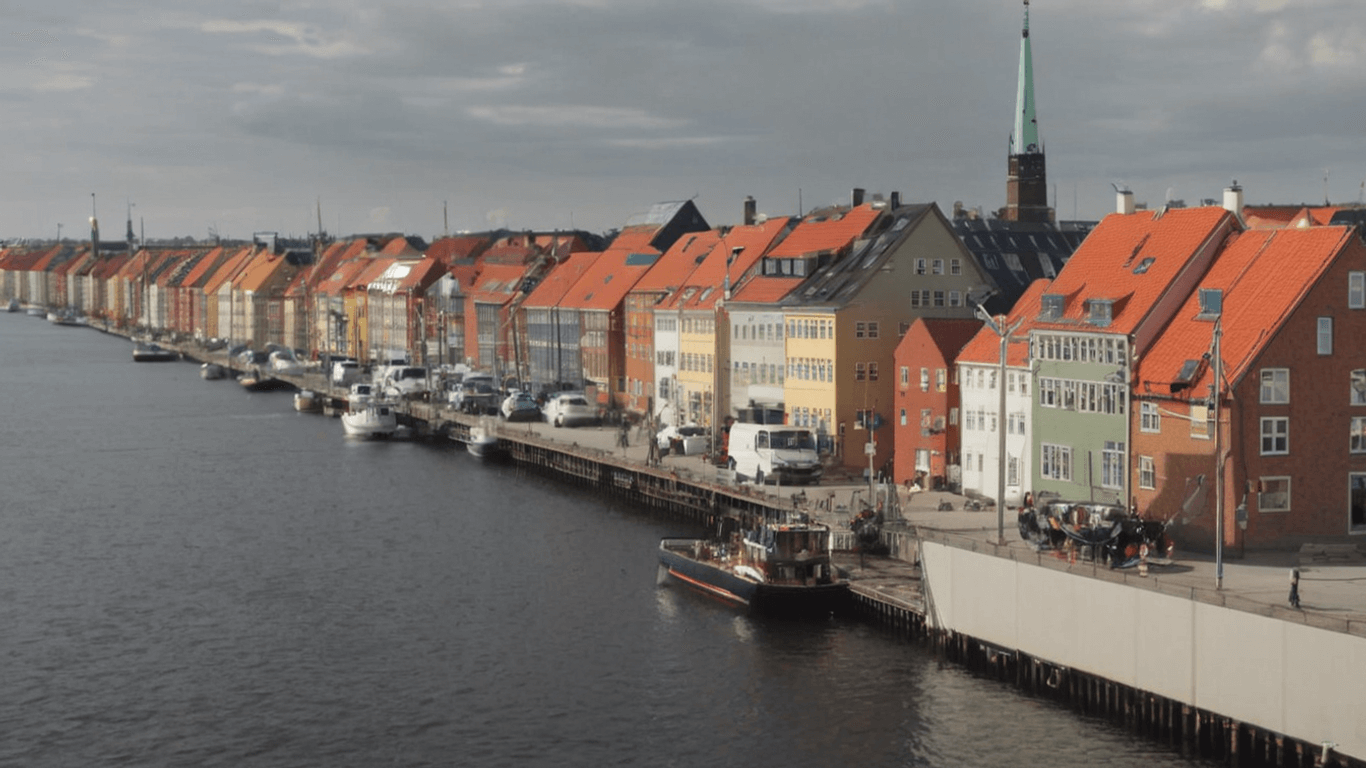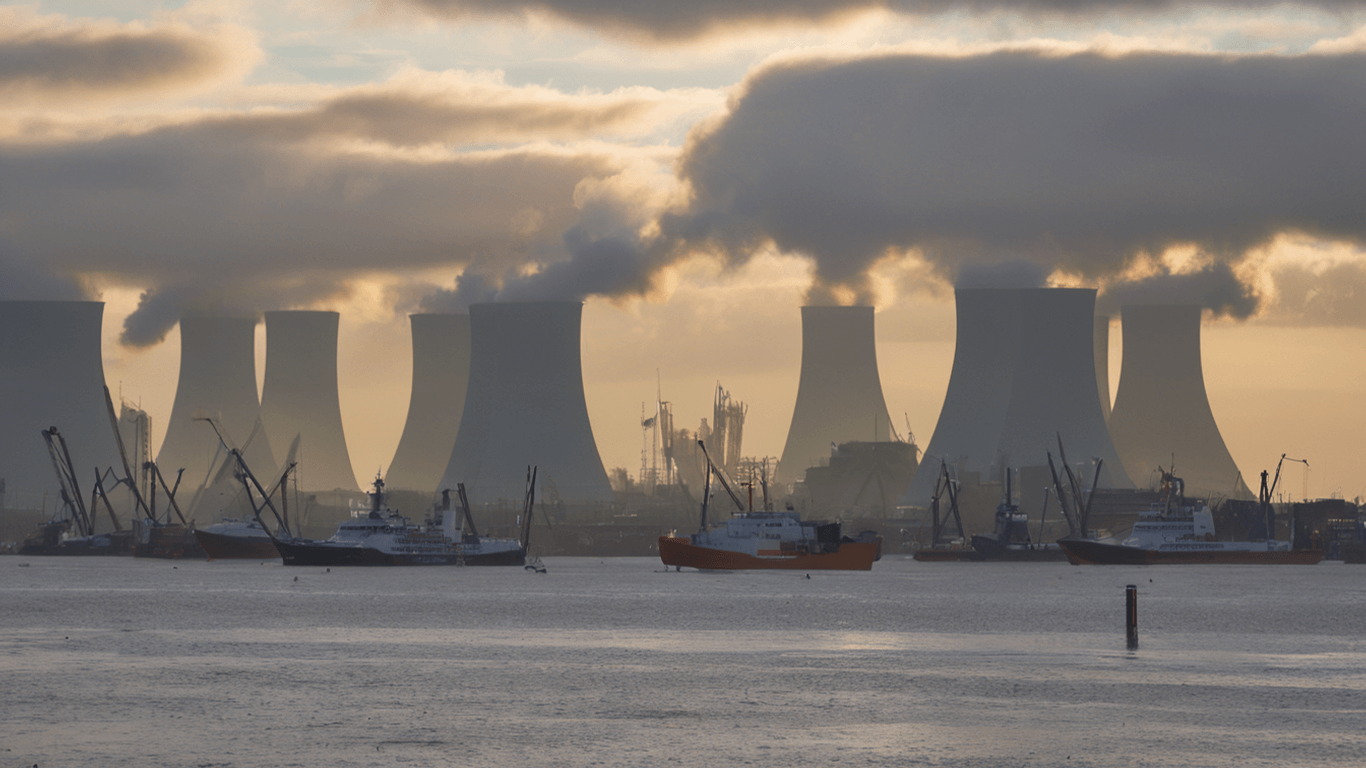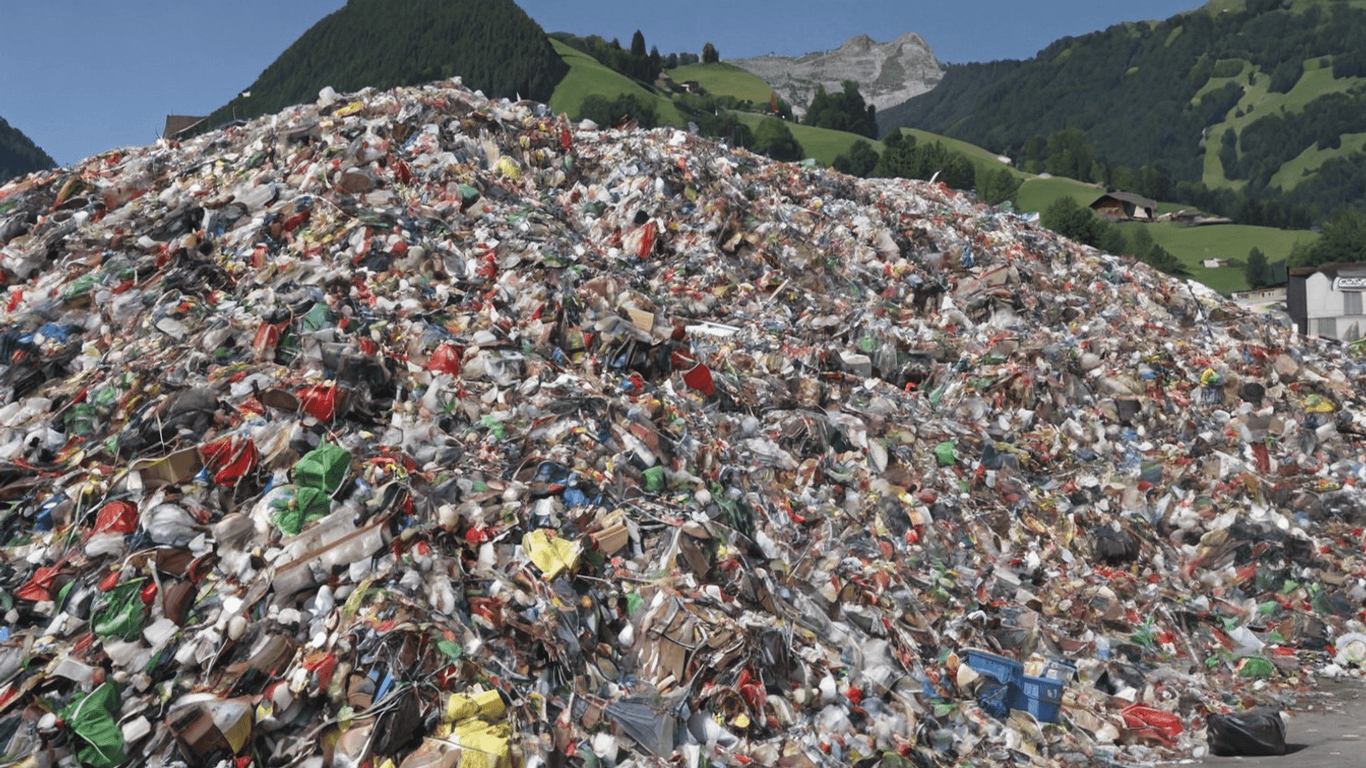Ever wondered what the greenest countries in the world are? Many factors can influence how you rank countries by ‘greenness,’ such as their current and future emissions, their environmental policies, the quality of their air and water, and the health of their ecosystems. With this in mind, we’ve settled on using the ranking provided by Yale University’s Environmental Performance Index. We’ll look at how each country has earned its spot on our top 11 greenest countries list. Greenest Countries In The World.
Denmark: Pioneering Climate Change Mitigation (Score: 77.9)
Denmark has emerged as a global leader in sustainable development, earning its top-ranking position through a steadfast commitment to environmental responsibility. At the forefront of this effort is the nation’s ambitious agenda to reduce carbon dioxide emissions, setting the bar high with a 50-54% reduction target by 2025 and an even more remarkable 70% reduction by 2030. This Nordic nation’s success in climate change mitigation not only demonstrates its dedication to a greener future but also surpasses European Union benchmarks, solidifying Denmark’s role as a beacon of sustainability. Greenest Countries In The World.
Comprehensive Approach to Sustainable Development:
Denmark’s rise to the summit of sustainable nations is attributed to its holistic approach to sustainable development. Unlike piecemeal strategies, Denmark has implemented a comprehensive plan that encompasses various facets of environmental responsibility. This includes not only carbon emissions reduction but also a focus on renewable energy, biodiversity conservation, and overall ecological stewardship.
Ambitious Carbon Reduction Goals:
Denmark’s commitment to combating climate change is vividly demonstrated by its bold carbon reduction goals. With a targeted reduction of 50-54% by 2025, the nation sets a challenging pace for others to follow. What’s even more commendable is Denmark’s audacious aim to achieve a staggering 70% reduction in CO2 emissions by 2030. These ambitious targets underscore Denmark’s unwavering dedication to mitigating the effects of climate change. Greenest Countries In The World.
Exemplary Emission Reduction Performance:
Denmark’s success in the realm of climate change mitigation is not just about setting lofty goals; it’s about achieving them. The nation has witnessed a significant decrease in emissions from 2005 to 2018, showcasing tangible progress in its mission to create a more sustainable future. This exemplary performance serves as a testament to Denmark’s proactive measures and effective policies in curbing carbon emissions.
United Kingdom: Surprising Success in Climate Change Mitigation (Score: 77.7)
In the global race against climate change, the United Kingdom has emerged as a surprising success story, securing the second position with an impressive total score of 77.7. Particularly noteworthy is the nation’s exceptional performance in Climate Change Mitigation, boasting a remarkable score of 91.5. Despite initial skepticism surrounding its 2030 targets, the UK has defied expectations and demonstrated a commendable 2.4% decrease in CO2 emissions from 2021 to 2022.
Progress and Achievements:
The United Kingdom’s commitment to combating climate change is evident in its ambitious goals for emission reductions. The nation is dedicated to achieving a 68% reduction in carbon emissions by 2030, with an even more ambitious target of a 77% reduction by 2035. These targets highlight the UK’s proactive stance in addressing the pressing issue of climate change, signaling a strong commitment to building a sustainable and eco-friendly future. Greenest Countries In The World.
Emission Reductions:
One of the key factors contributing to the UK’s success in climate change mitigation is the significant decrease in CO2 emissions. Despite initial doubts, the nation has managed to achieve a 2.4% reduction in emissions from 2021 to 2022. This achievement not only reflects the effectiveness of the UK’s strategies but also underscores its ability to make tangible progress in a relatively short timeframe.
2030 Targets:
The UK’s dedication to furthering emission reductions is evident in its ambitious 2030 targets. To reduce carbon emissions by 68% within the next decade, the nation aims to set a precedent for global climate action. These targets not only align with international efforts to combat climate change but also position the United Kingdom as a leader in sustainable practices.
Finland: A Balance of Mitigation and Environmental Health (Score: 76.5)
Finland, a Nordic gem nestled in the heart of Europe, has emerged as a shining example of environmental stewardship, achieving a commendable total score of 76.5 in the realms of Climate Change Mitigation and Environmental Health. Let’s delve into the reasons behind Finland’s stellar performance and explore the nation’s commitment to striking a harmonious balance between mitigating climate change and ensuring environmental health.
Mitigating Climate Change:
One of Finland’s standout achievements is its impressive 22% reduction in emissions from 2005 to 2019. This significant milestone underscores Finland’s unwavering commitment to decarbonizing domestic heating, a crucial aspect of addressing climate change. By actively adopting sustainable practices, Finland has positioned itself as a global leader in the race to reduce carbon footprints and combat the impacts of climate change. Greenest Countries In The World.
Clean Air, a Breath of Fresh Finnish Air:
Beyond its strides in climate change mitigation, Finland takes pride in offering some of the cleanest air on the planet. The nation’s air quality surpasses even the stringent requirements set by the World Health Organization (WHO), with fine particulate matter levels consistently below the recommended thresholds. This commitment to clean air reflects Finland’s dedication to the overall well-being of its citizens and the environment.
Malta: Island Nation’s Surprising Climate Efforts (Score: 75.2)
In the world of environmental conservation, unexpected heroes emerge, and the small island nation of Malta has recently secured an impressive fourth spot with a total score of 75.2 in climate efforts. This surprising ranking is primarily attributed to Malta’s outstanding performance in the Climate Change Mitigation and Ecosystem Vitality categories, showcasing the nation’s commitment to addressing environmental challenges.
Climate Change Mitigation Initiatives:
Malta has boldly claimed its fifth-place position in Climate Change Mitigation, signifying a proactive approach to reducing its carbon footprint. One noteworthy initiative is the ambitious goal set by Gozo, one of Malta’s islands, to achieve climate neutrality by the year 2030. This commitment demonstrates Malta’s dedication to combating climate change head-on, showcasing a determination to make a significant impact on a global scale.
Ecosystem Vitality and Innovative Projects:
Another key contributor to Malta’s high score is its commendable standing in the Ecosystem Vitality category. Despite its size, Malta has prioritized the restoration and preservation of its ecosystems. An innovative project gaining attention involves the transformation of old landfills into rewilded parks. This forward-thinking endeavor not only addresses waste management concerns but also fosters biodiversity and green spaces, contributing to a healthier environment.
Gozo’s Climate Neutrality Pledge:
The island of Gozo’s pledge to become climate-neutral by 2030 deserves special recognition. By setting such an ambitious target, Gozo exemplifies how even smaller regions can play a pivotal role in the global fight against climate change. The commitment to reducing emissions, adopting sustainable practices, and fostering environmental awareness positions Gozo as a beacon of inspiration for other communities worldwide.
Challenges and Strides:
While Malta undoubtedly faces environmental challenges, the nation’s proactive measures and commitment to change are garnering attention and praise. The unexpected ranking serves as a testament to Malta’s resilience and determination to make a positive impact on the planet.
Sweden: Nordic Excellence in Emissions Reduction (Score: 72.7)
In the realm of environmental stewardship, Sweden has emerged as a Nordic powerhouse, securing the fifth position with a commendable score of 72.7. This achievement is a testament to Sweden’s unwavering commitment to sustainability and its remarkable strides in emissions reduction. Let’s delve into the key factors that position Sweden as a frontrunner in environmental excellence.
Emissions Reduction Score:
Sweden’s impressive score of 72.7 is a result of its noteworthy achievements, particularly in Climate Change Mitigation and Environmental Health. This Nordic nation has set a high standard for global counterparts by demonstrating a strong dedication to curbing greenhouse gas emissions.
Greenhouse Gas Emission Decline:
One of Sweden’s notable accomplishments lies in the consistent decline of greenhouse gas emissions per capita. From 7.87 tonnes per capita in 2016, Sweden has successfully reduced this figure to 6.22 tonnes in 2021. This downward trend underscores the nation’s proactive measures in combating climate change and fostering a sustainable future.
Luxembourg: Sustainable Finance and Protected Ecosystems (Score: 72.3)
In the global landscape of sustainable practices, Luxembourg has emerged as a noteworthy player, securing the sixth spot with an impressive score of 72.3. This achievement is underlined by its outstanding fourth-place ranking in Ecosystem Vitality and a commendable eleventh-place in Climate Change Mitigation. Let’s explore the key factors contributing to Luxembourg’s success, particularly in the realms of sustainable finance and protected ecosystems.
Sustainable Finance Prowess:
A standout accomplishment for Luxembourg is the establishment of the Luxembourg Green Exchange, a pioneering sustainable finance platform. This initiative underscores the nation’s commitment to green and ethical investments. The Luxembourg Green Exchange serves as a testament to the country’s dedication to fostering environmentally responsible financial practices, positioning it as a leader in the global sustainable finance arena.
Protected Ecosystems Triumph:
Luxembourg surpasses expectations by exceeding the EU target for protected areas, with an impressive 55% of its land designated for nature conservation. This commitment to preserving and nurturing its ecosystems demonstrates a proactive stance towards biodiversity and environmental well-being. Luxembourg’s dedication to safeguarding its natural habitats is a crucial aspect contributing to its high score in Ecosystem Vitality.
Slovenia: Slavic Commitment to Ecosystem Vitality (Score: 67.3)
In the global landscape of environmental conservation, Slovenia proudly secures the seventh spot with an impressive score of 67.3. At the heart of this success lies the nation’s unwavering commitment to Ecosystem Vitality, earning it a remarkable second-place ranking in this crucial category. This dedication to preserving its natural treasures can be traced back to the 1970s when Slovenia officially recognized the right to a clean and healthy environment within its constitutional framework. Let’s delve into the factors that have propelled Slovenia to the forefront of environmental stewardship, despite facing challenges, particularly in urban air quality.
Ecosystem Vitality Excellence:
Slovenia’s rise in the global environmental rankings can be attributed significantly to its outstanding performance in Ecosystem Vitality. The nation has cultivated a profound respect for its natural surroundings, reflected in its constitution’s acknowledgment of the right to a clean and healthy environment. This early commitment laid the foundation for robust environmental policies and practices that endure to this day.
Forestry Triumphs:
One of Slovenia’s notable achievements lies in its exceptional forest coverage. The country has emerged as a guardian of its wooded landscapes, demonstrating a keen understanding of the critical role forests play in maintaining ecological balance. This commitment to sustainable forestry practices has not only contributed to the nation’s impressive environmental score but has also set an inspiring example for others to follow.
Austria: Leading in Ecosystem Vitality (Score: 66.5)
Nestled in the heart of Europe, Austria has emerged as a frontrunner in fostering Ecosystem Vitality, securing the eighth position overall with an impressive score of 66.5. Notably, Austria claims the top spot in the Ecosystem Vitality category, showcasing its unwavering commitment to nature conservation. This alpine nation’s dedication to sustainable development is exemplified by its extensive network of protected sites, including four UNESCO biosphere reserves.
Ecosystem Vitality Triumph:
Austria’s outstanding performance in the Ecosystem Vitality category underscores its dedication to preserving its natural treasures. With four UNESCO biosphere reserves dedicated to sustainable development, the country has set a gold standard in balancing human activities with environmental preservation. These reserves not only safeguard biodiversity but also serve as living laboratories for sustainable practices, contributing to global efforts in combating climate change.
Switzerland: Stringent Waste Management (Score: 65.9)
Switzerland, a picturesque haven nestled in the heart of Europe, has earned its stripes as a global environmental leader, securing the ninth spot with an impressive total score of 65.9. What sets Switzerland apart is its unwavering commitment to stringent waste management practices, a feat that has catapulted the nation to the forefront of environmental consciousness.
Environmental Health Excellence:
At the core of Switzerland’s success lies its fifth-place ranking in the crucial Environmental Health category. The country has become a beacon of sustainability, showcasing a remarkable dedication to preserving its natural splendor. This achievement reflects Switzerland’s holistic approach to environmental well-being, encompassing factors that directly impact the health of its ecosystems and inhabitants.
Iceland: Environmental Health and Waste Management (Score: 62.8)
Iceland, a land of stunning landscapes and vibrant culture, has once again earned its place on the global stage, securing the tenth position in Environmental Health and Waste Management with an impressive score of 62.8. Let’s dive into the factors that contribute to Iceland’s remarkable achievement and why it stands out in these crucial areas.
Environmental Health Excellence
Iceland takes the crown in Environmental Health, claiming the top spot in this category. The nation’s commitment to ensuring clean air is evident through consistently low levels of particulate matter. This dedication to environmental well-being not only enhances the quality of life for its residents but also sets a noteworthy example for other nations striving for a healthier environment.
The breathtaking landscapes of Iceland, from cascading waterfalls to majestic glaciers, remain untouched by the harmful effects of pollution, showcasing the country’s dedication to preserving its natural wonders.
Strides in Waste Management
Iceland’s dedication to waste management is equally commendable, earning it recognition on the global stage. In 2023, the nation implemented new regulations aimed at fortifying waste management practices. One of the key initiatives introduced was the enforcement of stringent waste sorting measures.
Netherlands: A Balanced Approach (Score: 62.60)
In the global pursuit of sustainable practices, the Netherlands stands out with a commendable approach, securing the eleventh position with a noteworthy score of 62.60. While not claiming the top spot in any specific category, the country distinguishes itself through a well-rounded strategy, emphasizing balance and pragmatism. This blog explores the Netherlands’ commitment to environmental sustainability, highlighting its unique position and the challenges it faces on the path to a greener future.
A Holistic Perspective:
The Netherlands’ approach to environmental stewardship is characterized by its holistic perspective. Unlike some countries that may excel in a particular aspect while neglecting others, the Dutch government adopts a comprehensive strategy that considers various facets of sustainability. This all-encompassing approach ensures that the nation addresses a range of challenges, contributing to its balanced score.
Summary: Beyond Rankings – Environmental Progress vs. Greenness
The Environmental Performance Index (EPI) ranking stands as a beacon, shedding light on the strides countries have made in environmental progress. While this tool is invaluable, it is imperative to recognize the presence of data gaps, particularly in crucial areas such as agriculture, water resources, and threats to biodiversity. In essence, the EPI ranking serves as a compass for environmental progress, offering insights into countries’ efforts rather than presenting an absolute measure of their ‘greenness.’ ( Greenest Countries In The World )
Web Hosting for WordPress Website
Choosing the proper web hosting provider is one of those decisions when you create a WordPress website that will determine its success. Your hosting decision may have a significant impact on your site’s performance, security, and scalability. Within this in-depth guide, we will take you through the essential criteria that should be taken into account when choosing WordPress hosting.










